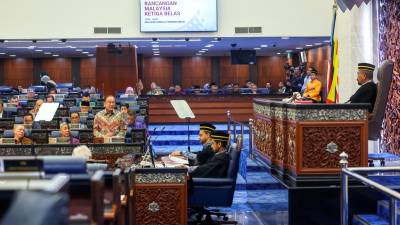KUALA LUMPUR: Prospects for the country’s economic growth are closely linked to the global economic environment, which is expected to moderate during the 13th Malaysia Plan (13MP) period due to various current challenges, according to the 13MP Main Document 2026-2030, themed “Redefining Development”.
The document, citing projections from the International Monetary Fund (IMF), expects the global economy to grow at a rate of 3.1% per year, while global trade is forecast to increase by about 3% per year during 2026 to 2030.
“This growth is driven by emerging markets and developing economies at a rate of 4% per year. Rapid economic growth, especially in South America, Africa, Middle Eastern countries, and Eastern Europe, creates new global trade and investment opportunities,” the document said.
However, it also stated that retaliatory measures by other countries against US trade tariffs are expected to affect international trade.
In addition, ongoing geopolitical tensions, such as those between Russia and Ukraine and Israel and Palestine, along with uncertainties from conflicts between India and Pakistan and Iran and Israel, are expected to disrupt global supply chains and increase production costs and commodity prices.
At the same time, large-scale global changes or mega trends will have significant impacts not only on Malaysia’s economic growth but also on the well-being of its people.
Key factors include shifts in dominance and the landscape of economic blocs, uncertainties in global trade policies, disruptive technological developments, demographic structural shifts, and global health crises that could pose threats that need to be addressed, according to the document.
“However, at the same time, these mega trends also create opportunities that the country can leverage. The US tariff war in 2025 puts pressure on the world and needs to be managed strategically to reduce the impact on the economy,” it added.
Domestically, Malaysia still faces several issues and challenges, including slow changes in economic structure, low-quality investment, slow adoption of technology, limited fiscal space, high dependence on imports, and an inefficient labour market.
Furthermore, low social mobility and the climate change crisis also impact the wellbeing of the people and the environmental ecosystem, the document added. – Bernama
